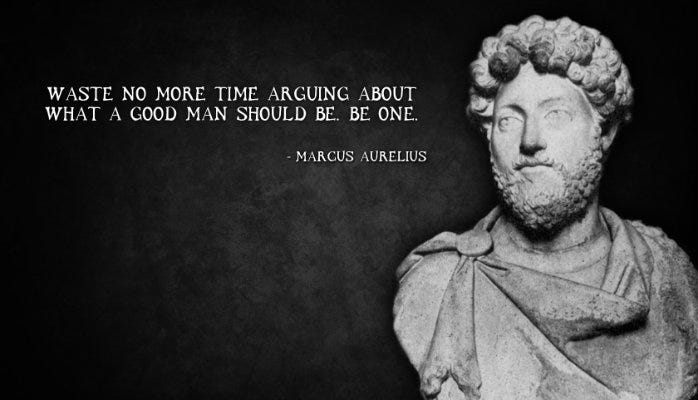Member-only story
9 Principles of Stoicism which will Improve your Life

Tim Ferriss’ most recent podcasts and studies demonstrate a keen focus, as always, on self-improvement. Yet specifically, his new series introduce practices of Stoicism.
What is Stoicism?
The four great works of four Roman stoics focus on four key central ideas which describe Stoicism, as defined by Exeter University:
Value: the only thing that is truly good is an excellent mental state, identified with virtue and reason. This is the only thing that can guarantee our happiness. External things such as money, success, fame and the like can never bring us happiness. Although there is nothing wrong with these things and they do hold value and may well form part of a good life, often the pursuit of these things actually damages the only thing that can bring us happiness: an excellent, rational mental state.
Emotions: our emotions are the project of our judgements, of thinking that something good or bad is happening or is about to happen. Many of our negative emotions are based on mistaken judgements, but because they are due to our judgements it means they are within our control. Change the judgements and you change the emotions. Despite the popular image, the Stoic does not repress or deny his emotions; instead he simply doesn’t have them in the first place. This isn’t as cold as it might at first sound: we ought to overcome harmful, negative emotions that are based on mistaken judgments while embracing correct positive emotions, replacing anger with joy.
Nature: the Stoics suggest we ought to live in harmony with Nature. Part of what they mean by this is that we ought to acknowledge that we but small parts of a larger, organic whole, shaped by larger processes that are ultimately out of our control. There is nothing to be gained from trying to resist these larger processes except anger, frustration, and disappointment. While there are many things in the world that we can change, there are many others we cannot and we need to understand this and accept it.
Control: in the light of what we have seen, there are some things we have control over (our judgements, our own mental state) and some things that we do not (external processes and objects). Much of our unhappiness is caused by confusing these two…
